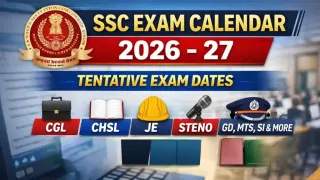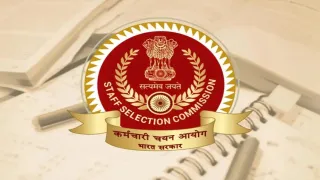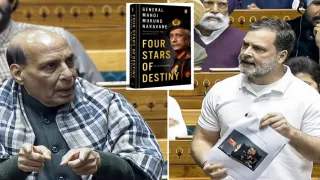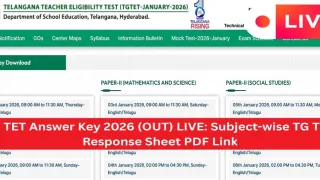The solemn morning ceremony in New Delhi marked an important constitutional moment as Justice Surya Kant stepped into one of the most powerful judicial positions in India. The atmosphere inside the Rashtrapati Bhavan was filled with anticipation as leaders, judicial officers, and dignitaries gathered to witness the historic oath-taking. The event not only symbolized a critical leadership transition but also underscored the judiciary’s foundational role in upholding the nation’s constitutional principles.
President Droupadi Murmu administered the oath to Justice Surya Kant, who has now assumed office as the new Chief Justice of India. The ceremony reflected the depth of tradition and constitutional responsibility carried by the position. For many, this transition marks a continuation of the Supreme Court’s evolving role in key national matters, especially those involving constitutional interpretation, civil liberties, and governance.
With his elevation to the highest judicial office, Justice Surya Kant begins a tenure that is expected to span nearly 15 months. His judicial journey, marked by landmark decisions and a reputation for strong constitutional vision, sets the tone for a future shaped by critical judgments and legal discourse. Citizens, policy makers, and legal experts keenly await the direction he may provide on several ongoing and upcoming matters of national importance.
Justice Surya Kant Takes Oath as the New CJI
President Droupadi Murmu administered the oath to Justice Surya Kant, who was appointed as the next Chief Justice of India on October 30. This official elevation follows the retirement of Justice B. R. Gavai, continuing the line of judicial leadership shaping the Supreme Court’s constitutional mandate. Justice Kant’s tenure will extend until February 9, 2027, when he turns 65, the retirement age for the nation’s Chief Justice.
The ceremony was a dignified affair, attended by prominent figures from across the political and judicial spectrum. Justice Kant stood with humility and composure as he took the oath. His journey from a small town in Haryana to the apex court of India highlights both a personal and professional ascent driven by integrity, scholarship, and unwavering commitment to justice.
Born on February 10, 1962, in Hisar, Haryana, Justice Kant built an illustrious legal career over four decades. From being raised in a middle-class family to becoming an eminent figure of Indian judiciary, his path is marked by resilience and academic excellence. Notably, he earned the distinction of securing 'first class first' in his Master’s degree in law in 2011 from Kurukshetra University, showing his dedication to continuous learning even after reaching senior judicial roles.
Notable Attendees and Absent Leaders
The swearing-in ceremony witnessed the presence of key national leaders. Prime Minister Narendra Modi, Home Minister Amit Shah, Lok Sabha Speaker Om Birla, Union Law Minister Arjun Ram Meghwal, and Union Commerce Minister Piyush Goyal were among the dignitaries who attended the event. Their presence highlighted the significance of the moment and the close association between the executive and judicial institutions during formal constitutional functions.
However, the ceremony also saw the absence of Leader of Opposition in the Lok Sabha, Rahul Gandhi. His non-attendance drew attention, adding a mild political undertone to an otherwise formal event. Observers speculated about the reasons behind his absence, although no official communication was made regarding the matter.
The event also welcomed distinguished international attendees. Chief Justices from Bhutan, Kenya, Mauritius, Nepal, and Sri Lanka were present as part of the larger Constitution Day celebrations. Their participation underscored India’s judicial influence and the global relevance of constitutional dialogue among democracies.
Justice Kant’s Landmark Judgments and Legal Contributions
Justice Surya Kant has played a pivotal role in several important cases throughout his judicial career. Before his elevation to the Supreme Court, he served as a judge in the Punjab and Haryana High Court and later as the Chief Justice of the Himachal Pradesh High Court, where he authored notable decisions that shaped regional and national jurisprudence.
At the Supreme Court, Justice Kant’s tenure has been marked by participation in historic and high-impact verdicts. He was part of the bench that upheld the abrogation of Article 370, which removed Jammu and Kashmir’s special status—a decision that continues to shape the political and constitutional structure of the region.
Justice Kant was also involved in significant rulings concerning free speech, citizenship rights, and administrative powers. His balanced and constitutionally rooted approach brought clarity to some of the most complex legal issues faced by the country.
Major Cases That Defined Justice Kant’s Career
Justice Kant has contributed to multiple landmark judicial interventions. He was part of the presidential reference related to the powers of Governors and the President in dealing with bills passed by state legislatures. The verdict in this matter, still awaited, could have far-reaching constitutional consequences for federal relations in India.
Another monumental decision under his leadership was the Supreme Court’s direction to keep the colonial-era sedition law in abeyance. Justice Kant and the bench ordered that no new FIRs be registered under the sedition statute until the government conducted its review. This unprecedented move placed the focus firmly on civil liberties and the need to scrutinize laws that potentially restrict free speech.
In a crucial ruling involving the Bihar electoral process, Justice Kant ordered the Election Commission to disclose details of the 65 lakh voters excluded from the draft electoral rolls. The decision came during hearings on the Special Intensive Revision of the voters list, emphasizing transparency and accountability in democratic processes.
Championing Grassroots Justice and Gender Equality
Justice Kant has also made impactful contributions to local governance and gender rights. He led a bench that reinstated a woman sarpanch who had been unlawfully removed from office, highlighting discriminatory practices and reinforcing the importance of gender justice at the village level.
In another progressive ruling, he directed that one-third of seats in bar associations, including the Supreme Court Bar Association, be reserved for women. This decision was widely praised for empowering women in the legal profession and promoting gender-balanced leadership within judicial and legal institutions.
Justice Kant further played a key role in ensuring accountability during Prime Minister Narendra Modi’s 2022 Punjab visit. He was on the bench that appointed a five-member committee led by former Justice Indu Malhotra to probe the security lapse during the Prime Minister’s convoy. His observation that such matters require “a judicially trained mind” reflected his belief in integrity and impartial oversight.
Legacy of Constitutional Commitment and National Impact
Justice Surya Kant has upheld the constitutionality of major policy decisions as well. He was part of the bench that validated the One Rank-One Pension (OROP) scheme for defence personnel, acknowledging its structural integrity and national importance. He continues to hear cases involving women officers in the armed forces who are seeking parity in permanent commission, reinforcing his commitment to gender equality in military service.
In an iconic judgment, Justice Kant contributed to the seven-judge bench that overturned the 1967 Aligarh Muslim University ruling, opening the doors for reconsideration of the institution’s minority status. This decision marked a significant shift in the interpretation of educational rights and minority protections under Indian law.
Justice Kant also played a decisive role in the Pegasus spyware case, being part of the bench that appointed a cyber-expert panel to investigate allegations of unlawful surveillance. He famously remarked that the state cannot receive a “free pass under the guise of national security,” emphasizing the court’s role in balancing individual rights with national interests.
As Justice Surya Kant assumes office as the Chief Justice of India, his extensive judicial experience, constitutional insight, and commitment to justice set the stage for a tenure that could shape the legal landscape of India for years to come. His contributions reflect a deep dedication to fairness, transparency, and the rule of law—qualities that will continue to guide the Supreme Court under his leadership.
Also Read: Delhi AQI Near 400: Chilli-Spray Protesters Shock Police























